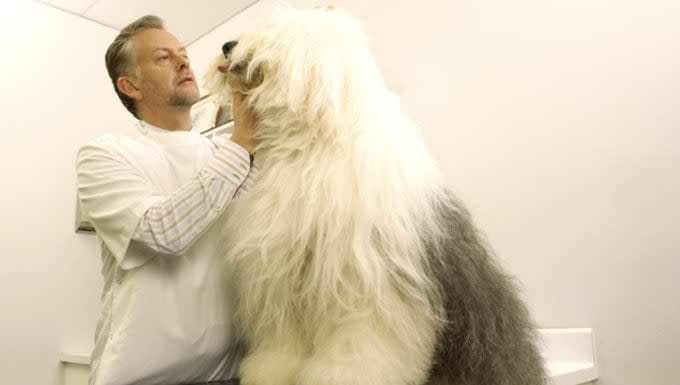Non-Inflammatory Metabolic Myopathy in Dogs: Symptoms, Causes, & Treatments

(Learn more about non-inflammatory metabolic myopathy in dogs. Picture credit: Dean Golja / Getty Images)
Non-inflammatory metabolic myopathy in dogs is a type of muscle disease. The condition is often caused by enzyme defects.
Thankfully, the condition is considered to be rare in dogs. Although some breeds are predisposed to it. For example, Akitas, German Shepherds, and American Cocker Spaniels all develop the condition more than usual.
Technically, the condition is also known as metabolic muscle disease without inflammation in dogs.
Although note that the condition is more general than hereditary muscle disease (non-inflammatory myopathy) in Labrador Retrievers. You can read more about that condition here.
If you see the signs of the condition in your dog, then get to a veterinarian for a proper diagnosis and treatment.
Here’s what you should know about the symptoms, causes, and treatments for the condition.
Symptoms of Non-inflammatory Metabolic Myopathy in Dogs
The condition produces a number of symptoms. For example, some of the most common symptoms include:
Avoiding exercise
Cramps
Weak muscles
Collapsing
Vomiting
Swollen stomach
Dark colored pee
Causes of Non-inflammatory Metabolic Myopathy in Dogs

(Picture credit: Constantinis / Getty Images)
The cause of the condition is often due to metabolic problems. Although some of the other common causes include:
Toxins (from drugs)
Environmental issues
Viral infection
Additionally, the following breeds are predisposed to the condition:
Akita
English Springer Spaniel
Old English Sheepdog
American Cocker Spaniel
Sussex Spaniel
Treatments for the Condition in Dogs
Firstly, your vet will ask about your dog’s symptoms. Secondly, your vet will ask about your dog’s full medical history. This will include breed-specific problems.
Thirdly, your vet will carry out a full physical examination. Blood and urine tests will also be taken. The subsequent results of the tests can show any metabolic problems. Additionally, your vet might want to take a muscle tissue sample.
Generally, your dog’s treatment will target any metabolic problems. For example, your vet might recommend diet changes. Your vet will help come up with a safe and nutritious diet plan for your dog.
Finally, your dog can benefit from a period of rest while recovering. Providing your dog with a quiet and calm home environment is also key.
Have you ever cared for a dog who suffered from this condition? How did your vet help your dog recover? Let us know in the comments section below.
The post Non-Inflammatory Metabolic Myopathy in Dogs: Symptoms, Causes, & Treatments appeared first on DogTime.

